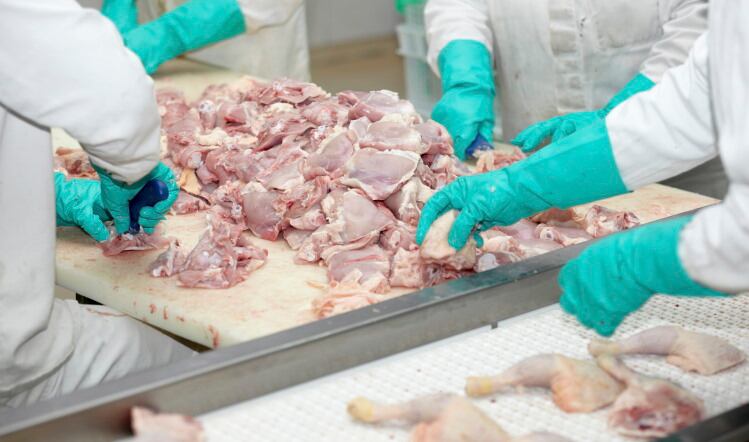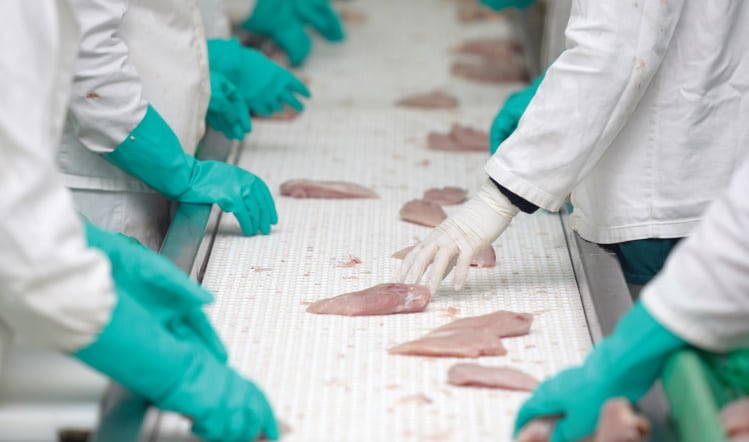A spokesperson for the confectionery giant said the firm was facing several challenges throughout its supply chain, including a shortage of drivers coupled with an ‘unprecedented and sustained surge in demand’.
“Whilst this demand is great news for the category and wider economy, it does mean we will have to review our activity plans with all our wholesale and retail partners to ensure the best availability possible is maintained,” the spokesperson added.
Supply hold-up
Other companies across the industry are experiencing similar issues. EHL Ingredients warned mixed pallets of herbs, spices, seeds and nuts destined for the UK foodservice and retail sectors were stuck in ports due to the widely reported driver shortage.
EHL managing director Tasneem Alonzo said: “The transport crisis is not only affecting us but everyone right across the food industry supply chain. Businesses should be ready to allow more time for deliveries as the industry isn’t able to operate as it normally would.”
The Federation of Wholesale Distributors (FWD) has also sounded the alarm over driver shortages. A spokesperson for the trade body said: “Some wholesalers have had to limit the number of deliveries they make to convenience stores, which has led to availability issues. They have done all they can to keep their customers stocked, including raising drivers’ wages and even sending depot staff out in vehicles to fulfil smaller orders.
“Some have had to turn down business in order to fulfil orders to regular customers. They have tried engaging agencies, but agencies too are short of drivers. If fresh produce cannot be delivered then it creates food waste, much of which is difficult to redistribute and will need to be destroyed.”
The spokesperson added that manufacturers who supply into the wholesale channel have experienced similar issues with distribution, and FWD members are reporting particular difficulties getting hold of soft drinks, beer, and chilled products like cream, cheese, yoghurt and meats.
‘Perfect storm’
The Road Haulage Association (RHA) believes the crisis in driver numbers is due to the ‘perfect storm’ of the post-Brexit immigration rules making recruitment more difficult and COVID-19 causing a backlog for driving tests.
Last week the RHA wrote to prime minister Boris Johnson calling for urgent action to tackle the shortage, which it estimates stands at around 100,000 drivers. The trade body also issued ministers with a 12-point action plan offering solutions, including the addition of truckers to the Shortage Occupation List, allowing firms to temporarily recruit drivers from abroad.
EHL’s Alonzo agrees Brexit is the main culprit of the crisis. “The driver shortage is a clear result of the exodus of EU drivers without a plan or strategy by the Government to recruit a replacement UK workforce,” he said.
“As the country opens up and supplies are needed in hospitality and retail, demand will increase as businesses race to replenish stocks, and the driver shortage and wider transport crisis will cause even further headaches for shops and restaurants ready to reopen.”
However, a think tank organised by logistics firm Driver Require believes the problem has been a long time in the making. In its report The Answer to the UK’s HGV Driver Shortage, the group points out that in July 2016 the House of Commons Transport Committee produced a report on skills and workforce planning in the road haulage sector that concluded:
“The industry must take a long-term view if it is to meet the challenges posed by the likely growth in demand and the effects of the demographic timebomb, both of which will be felt increasingly over the next 10-15 years.”
Indeed, Food Manufacture reported that the shortage of HGV drivers could cripple the food industry as far back as December 2014, although the impact of the pandemic and Brexit could have made things worse.
Driver depletion
Driver Require points out that 10,000 HGV drivers a year are retiring, along with 20,000 quitting the job for a living. With the under-40 HGV driver pool remaining ‘steadfastly’ at 67,000, the industry is suffering a net depletion of its workforce of around 6,000 drivers per year.
“Our estimate of the severity of the issue could worsen as we better understand the rate of departure of the EU HGV driver contingent,” said Driver Require CEO Kieran Smith.
The think tank’s report puts forward several steps to alleviate the problem. These include negotiating with insurers to reduce limitations on the age of HGV drivers, targeted initiatives to bring back certain groups of HGV licence holders into driving for a career, and offering bus drivers the ability to cheaply and quickly convert their Category D licences into Category C (rigid HGV) licences.
Short-term
The FWD, meanwhile is calling for immediate action to reinstate the temporary extension of drivers’ hours from nine to 11 that was in place last year, and to speed up certification of new or lapsed drivers.
“Longer term, we’d like to see seasonal visas for EU HGV drivers, and the role added to the Home Office Shortage Occupation List,” the spokesperson said.
On a more positive note, they added: “We had a very constructive meeting with Defra officials this week who are clearly switched on to the potential threat to food supply if this distribution crisis isn’t addressed immediately.
“We will be working with Defra to demonstrate to other Government departments that while this is a long-term problem, it desperately requires a short-term solution.”




